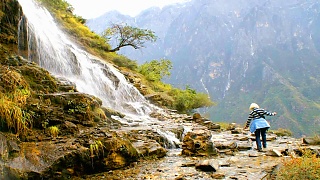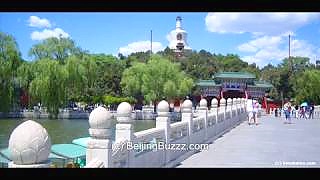
|
With Wei's Travel ...
NanXiang Town is affiliated to JiaDing District, ShangHai. It is one of the four famous historical towns in Shanghai. It was once known as 'Little Nanxiang' and 'Sioux City' in history. Nanxiang is a thousand-year-old ancient town. As early as the fourth year of Liang Tianjian in the Southern Dynasty (AD 505), the Baihe Nanxiang Temple was built, and the temple got its name. Later, monuments such as the Twin Brick Pagodas of the Five Dynasties, Hecha Mountain in the Southern Song Dynasty, and the Guyi Garden and Tan Garden in the Ming Dynasty were built. Nanxiang Town has successively won titles such as China's Famous Historical and Cultural Town and National Civilized Town. Nanxiang has high-tech parks and urban industrial parks. More than 200 companies from more than 20 countries and regions around the world have settled in Nanxiang. Nanxiang is a small town with a very developed economy. The famous Nanxiang Xiaolongbao has also spread all over the world and has become the most famous Nanxiang gourmet masterpiece.
00:00 Travel Highlights 旅行精华预览
01:51 Nanxiang Old Street 南翔老街
06:01 Nanxiang Ancient Town 南翔古镇
07:41 Xiaolongbao Cultural Center 南翔小笼包文化馆
11:10 People Street 人民街
21:20 Yunxiang Temple 云翔寺
26:14 Twin Towers Plaza 双塔广场
27:15 Nanxiang History Museum 南翔历史文化馆
29:57 Huntang Lane 混堂弄
31:14 Tanyuan Garden 檀园
36:42 Shifang Art Museum 十方书院美术馆
39:21 Mansion of the Ancients 南翔人家
42:17 Baozun Lobby 宝尊堂
43:34 Garden Lakeside 花园湖景
47:36 Garden Rockery 花园假山
48:45 Beautiful View in Tanyuan 檀园美景
51:21 Republic Street 共和街
Welcome to NanXiang Ancient Town
Introduction
History
Top Attractions
Local Cuisine
Visitor Tips
Introduction
NanXiang Ancient Town, located in the JiaDing District of ShangHai, is a historic town known for its rich cultural heritage, beautiful ancient architecture, and famous NanXiang XiaoLongBao (soup dumplings). The town offers visitors a chance to step back in time and explore traditional Chinese culture and history.
History
Founded over 1,500 years ago during the Southern and Northern Dynasties, NanXiang has been an important cultural and economic hub in the region. The town played a significant role during the Ming and Qing dynasties, and many of its ancient buildings and structures have been preserved to this day.
Top Attractions
Guyi Garden
Guyi Garden is one of the most famous classical gardens in ShangHai. Originally built in the Ming Dynasty, the garden features beautiful landscapes, ancient trees, and traditional Chinese pavilions, making it a must-visit for those who appreciate natural beauty and history.
YunXiang Temple
YunXiang Temple is a Buddhist temple with a history of over 1,000 years. The temple is known for its serene environment, exquisite architecture, and significant cultural artifacts. Visitors can explore the temple grounds and learn about its rich history.
NanXiang Old Street
NanXiang Old Street is a bustling area filled with traditional shops, teahouses, and eateries. The street is lined with ancient buildings, offering a glimpse into the town's past while providing a lively atmosphere for visitors.
Local Cuisine
NanXiang is the birthplace of the famous NanXiang XiaoLongBao, a type of steamed bun filled with soup and meat. These dumplings are a must-try for any visitor. The town also offers a variety of other local delicacies, including traditional ShangHai snacks and sweets.
Visitor Tips
Best Time to Visit: Spring and autumn are the best times to visit NanXiang, as the weather is mild and pleasant.
Getting There: NanXiang Ancient Town is accessible by metro and bus from downtown ShangHai. The closest metro station is NanXiang on Line 11.
Language: While Mandarin is the primary language, many locals speak the Shanghainese dialect. Basic English may be understood in tourist areas.
Etiquette: When visiting temples, dress modestly and be respectful of the religious practices.
|
 The beautiful JiuZhaiGou 九寨沟 National Park
The beautiful JiuZhaiGou 九寨沟 National Park



